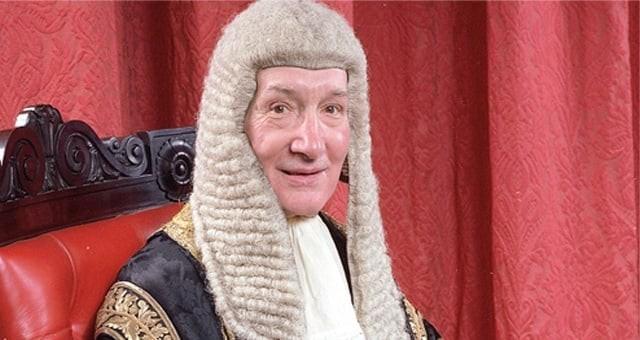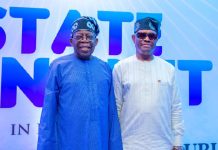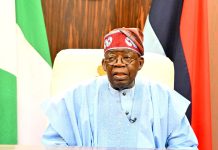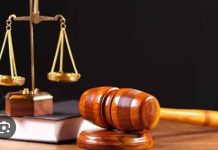Thus, it baffles me why the vast majority of the respondents’ attorneys in the deluge of petitions that followed the 2007 general elections, for instance, arrived in the Election Tribunals believing that the petitioners or plaintiffs needed to establish their claims beyond a reasonable doubt. Many of them, regrettably, found supporters in most tribunals, which is why the processes were drawn out and never ended. The politicians have gotten the message: go ahead and work with law enforcement and INEC to rig the system so that the opposition is not burdened with proving its case beyond a reasonable doubt!
For what reason should an Election Tribunal function similarly to a Crime Tribunal? A tribunal’s only option regarding any established crime in an election suit is to recommend to INEC, as stated in Section 144 of the Electoral Act, 2022 [which is equivalent to Section 157 of the Electoral Act, 2006]: “The Commission (INEC) shall consider any recommendation made to it by a tribunal with respect to the prosecution by it of any person for an offence disclosed in any election petition.”
Injustice in Nigeria has undoubtedly been committed and sustained by the Supreme Court’s decision in Unongo v. Aper Aku, which established the loophole that permits election petitions to virtually run indefinitely! The judiciary has been given election authority instead of the electorate. Election malpractice, bribery, corruption, and political perfidy have all been promoted by it. It has promoted “do or die” politics, according to which we shall be in power and battle from the mountain while the opposition party will fight from the valley for however long it takes. How could an extra-constitutional ruling be anything more?
I’ll say it again: Nigerian courts are not empowered to permit electoral proceedings against the president or a current governor. Election suits can only be heard by the courts prior to the Electoral Commission’s declared winner being sworn in as president or governor. Because of this, the Nigerian Constitution of 1979 or 1999 stipulates that only four circumstances can result in the resignation or death of a governor or president, or in the impeachment of a current one.
The 1999 Constitution’s s.146 (1)(2), which is substantially the same as the 1979 Constitution’s s.134 (1)(2), is as follows for any confusion: 146. (1) In the event that the President is removed from office for any cause under section 143 or 144 of this Constitution, including death, resignation, impeachment, permanent incapacity, or any other reason, the Vice-President will assume the President’s duties. (2) In the event that a vacancy arises under the conditions outlined in this section’s subsection (1) while the vice president’s office is also vacant, the Senate President will step in as president for a maximum of three months, during which time a new president will be elected to serve the remaining term of the previous occupant. Permanent incapacity is covered by s.144, whereas impeachment is covered by s.143. Impeachment and permanent disability are lengthy procedures, unlike death or resignation, which is why they are emphasized. The Nigerian Constitution’s founders never considered removing an incumbent governor or president due to a court-ruled nullification of an election.
A governor or the president, by virtue of s.308 of the constitution, is not a compellable witness; no court in the land can subpoena him, I stated in the opening section of this speech. The court has the authority to order the attendance of any contender, including the president-elect or the governor-elect. Additionally, I noted that “subsections 5 to 8 inserted into s.285 of the 1999 Constitution following the 2010 constitutional amendment exercise are in utter conflict with s.191, s.146, and s.308(1a), and run contrary to the intention of the framers of the constitution.” A state governor’s or president’s term cannot be extended by election petition proceedings. Because they are against natural justice, common sense, and the framers’ intent, subsections 5 to 8 of s.285 should be overturned by the courts.
The Supreme Court must go back and change its mind. In the case of Unongo v. Aper Aku (1983), we cannot even claim that the court committed a legal error because it was functioning outside of the constitution. However, we should consider the Lord Chancellor’s remarks when the British House of Lords voted to eliminate the absolute binding power of their own verdicts on legal matters in 1966, even if we accept that the highest court just made mistakes in the law.
According to their Lordships, precedent is a crucial basis for determining the law and how it applies to certain situations. It gives people a framework for the orderly development of legal standards and at least a certain level of assurance that they can rely on when conducting their affairs. However, their Lordships acknowledge that a too rigorous regard to precedent can both unnecessarily impede the proper development of the law and result in unfairness in a given case. As a result, they intend to change their current procedure and, although they will still consider earlier rulings from this House to be legally binding, deviate from them when it is appropriate to do so. It is not the intention of this pronouncement to influence precedent-setting outside of this House.
At this point, the Nigerian Supreme Court must take advantage of the first chance it has to reverse itself intrajudicially.
And how can we get out? According to Section 233(5) of the 1999 Constitution, any Nigerian citizen or fellow countryman with an interest in this issue may request permission from the Supreme Court to join any election petition involving the president or any governor if and when the case reaches the highest court. The application will ask the Supreme Court to halt, dismiss, or put on hold legal action against the president or a governor due to a lack of jurisdiction.
“The court will not listen to a busybody who is interfering in things which do not concern him, but it will listen to an ordinary citizen who comes asking that the law should be declared and enforced, even though he is only one of a hundred, one of a thousand, or one of a million who are affected by it,” the late Master of the Rolls, the legendary Lord Denning, wrote in The Discipline of Law. This statement provides guidance on the issue of locus standi, which will inevitably arise upon such an application by any concerned citizen or other person having an interest in the matter. Therefore, it can be claimed that the new approach has produced an actio popularis in England, which allows an average citizen to enforce the law for the good of all.
Read Also: Nine Confirmed Dead as Boat Overturns in Jigawa, Rescuers Save Others
Let’s say we have a popular movement in Nigeria. The Supreme Court of Nigeria should not continue to make mistakes. At page 275 of Adegoke Motors vs. Adesanya, [1989] 13 NWLR, pt.109, 250, the late Justice Chukwudifu Oputa immortalized the following: “We are final not because we are infallible; rather, we are infallible because we are final.” Because they are human, the justices of this court are prone to mistakes. Being blind to this clear fact will undoubtedly be shortsighted hubris. It’s also true that this Court’s shrewd rulings have the potential to accomplish immeasurable good. Similarly, the Court’s errors might cause irreversible injury. Learned counsel should therefore have the guts and bravery to request that a decision be overturned when it seems to them that it was rendered per incuriam in this Court. This Court is able to overrule itself, and it has done so in the past because it firmly believes that it is preferable to acknowledge mistakes than to continue making mistakes.
How much more leeway do the five months allowed under s.178(2) or s.132(2) of the 1999 Constitution, as amended, which stipulate that a presidential or gubernatorial election may be held 150 days prior to the swearing-in date, have if the 1979 election issue could be resolved?
Join Television Nigerian Whatsapp Now
Join Television Nigerian Facebook Now
Join Television Nigerian Twitter Now
Join Television Nigerian YouTUbe Now





